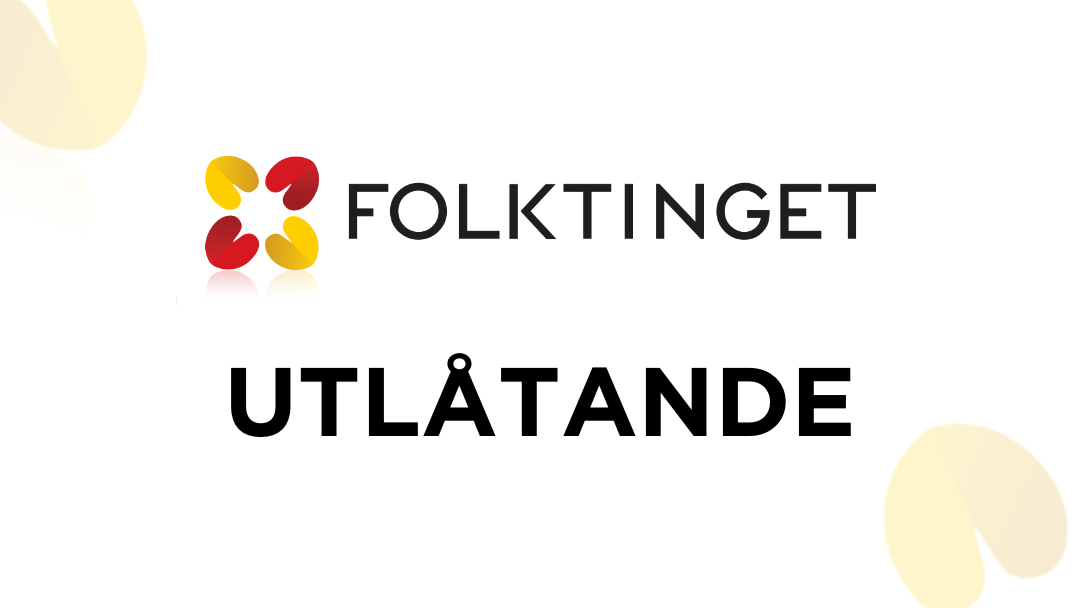Europarådets expertkommitté för den europeiska stadgan om landsdels- eller minoritetsspråk har bett Folktinget kommentera utkastet till förslag till lagar om vårdreformen.
Folktinget gav följande kommentarer (endast på engelska).
To the Committee of Experts of the European Charter for Regional or Minority Languages of the Council of Europe
POSITION ON THE DRAFT GOVERNMENT PROPOSAL ON THE REFORM OF HEALTH AND SOCIAL SERVICES
A draft government proposal concerning the health and social services reform and the organisation of rescue services was published in June. The draft is open for comments until 25 September. More information on the draft can be found here.
As regards linguistic rights and the rights of the Swedish speaking population in Finland, the draft proposal is satisfactory. There are, however, some challenges that need to be taken into consideration.
The draft proposes that 22 counties would be entrusted with the health, social and rescue service duties that are currently the responsibility of almost 300 municipalities. Although a model with larger service organisers generally gives better opportunities to find Swedish speaking expertise and possibilities to organise services in Swedish, there will be challenges for most bilingual counties in organising social and health care equally in Swedish and Finnish.
The democratic rights will be affected, as the proportional share of Swedish speaking persons decreases in the counties compared to the municipalities. Thus, the possibilities of the Swedish speaking population of impacting decision making regarding social and health care will be reduced. In the draft proposal, the reduction in democratic influence of the linguistic minority – Finnish or Swedish – is compensated with a board for language minority issues, a so-called National Languages Board, in every bilingual county. In order for the Board to be able to operate and fulfil its tasks, it is however essential that it is given enough resources. Eight of the 22 counties are bilingual (Finnish-Swedish). There is also a ninth bilingual county (Finnish-Sami).
The eight bilingual counties are also obliged to enter into an agreement on cooperation and division of responsibilities regarding certain social and health services in Swedish. Cooperation is needed, since the number of Swedish speaking persons that rely on these services is rarely high enough for the bilingual counties to be able to individually provide the services. The services mentioned in the draft proposal are services for persons with intellectual disabilities, and “other services”.
Services for Swedish-speaking persons with intellectual disabilities are to be agreed upon, since the responsibility for the services now provided by the joint municipal authority Kårkulla is proposed to be transferred to the bilingual counties, and an agreement on cooperation would ensure that the services for these clients would continue. It is very important that the services for these clients are safeguarded in the agreement since there is a substantial risk that the services in Swedish otherwise will deteriorate in the long run in some of the counties.
We welcome the draft provision on the agreement on cooperation, but are concerned that social and health care for other vulnerable Swedish speaking groups, the “other services” mentioned in the provision, such as other disability services, various types of addiction services, mental health services, child welfare services, services for elderly with memory disorders etc, does not get enough attention during the negotiations on the agreement. Therefore, we find it important that the government emphasises these other types of services in the following legislative procedure.
From the perspective of the Swedish speaking population in Finland a successful implementation of the reform depends on how well the linguistic rights are taken into account in the structures of the organisation of the counties, and that sufficient economic resources are reserved for the development and planning of the Swedish speaking services.
Best regards,
Christina Gestrin
Secretary general
Folktinget
Johanna Lindholm
Specialist
Folktinget

